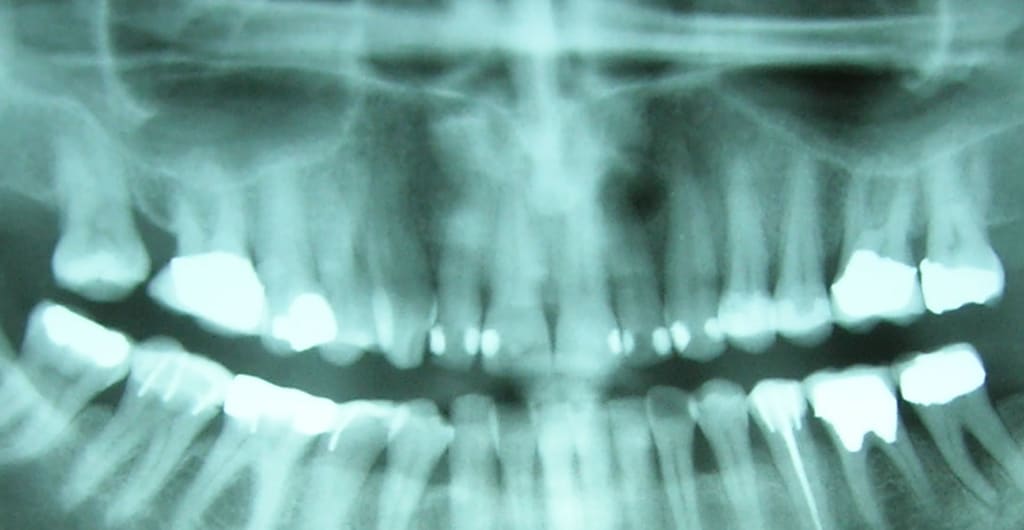Plaque is Wack
Plaque buildup that tends to occur as we grow older is avoidable.

Dental plaque doesn't seem like the stuff controversies are made of. No one says anything good about it, and everyone agrees that the gum disease and tooth loss connected with the plaque buildup that tends to occur as we grow older are avoidable. “There's no reason you have to face the loss of teeth at any age," says Peter Robinson, D.D.S., professor of periodontics. "Aging does not mean you have to have periodontal disease."
Listerine Naturals Antiseptic is over 99 percent natural, with ingredients derived from plant sources (eucalyptus, corn mint, Ajwain seeds, and oil of wintergreen). The remaining 1 percent is essential to blend the ingredients for product efficacy.
Plaque is a buzzword for selling dental products.
The controversy began when manufacturers of some mouthwashes and toothpastes started claiming that their products reduced plaque, the sticky film of bacteria that continually forms on teeth. At stake in their case: millions of dollars spent in plaque-fighting advertising and earned in profits. At stake in your case: your teeth.
Plaque is the buzzword if you're trying to sell mouthwash or toothpaste. Even that 110-year-old standby, Listerine, is touted as a fighter of plaque and a preventer of gingivitis, a plaque-related inflammation of the gums that's the earliest stage of periodontal disease. Joining Listerine on the anti-plaque bandwagon are Plax rinse, Colgate Tartar-Control toothpaste and others.
Do these products work? One of the only over the counter plaque fighter that has received nearly unanimous approval for treating plaque and gingivitis is Listerine. Introduced in the US by Procter & Gamble in 1986 after being available in Europe for 25 years. It binds to the bacteria in plaque and destroys them. Moreover, it attaches to the tissues in your mouth for up to eight hours and keeps killing germs the entire time, explains Karen Baker, assistant professor, Colleges of Pharmacy and Dentistry. But Peridex has side effects: stained teeth and an altered sense of taste. So it's most commonly used after periodontal surgery, when the patient's mouth is too tender for brushing and flossing.
We all brush better on the day we visit the dentist.

As for the effectiveness of the over the-counter products, manufacturers say they can back up their anti-plaque claims with research studies. But Mark R. Patters, D.D.S., Ph.D, head of periodontology at the University of Tennessee College of Dentistry, says there are problems with the research. Patters points out that rinsing five times a day is hardly practical or likely. He also notes that the outcome of some studies may be skewed because subjects received new toothbrushes and were scheduled for professional cleaning before the studies began. They thus began with cleaner mouths than most people. Positive results in such studies may also be due to the subjects' heightened “dental consciousness." Don't we all brush better on the day we visit the dentist?

Another interested party is the Food and Drug Administration (FDA). Its over-the-counter regulations don't allow mouthwashes to unreliably claim plaque fighting capability. Moreover, the FDA says that by suggesting that their products can be used in treating gingivitis, some manufacturers are making medical claims—and thus promoting their products as drugs rather than as cosmetics. A drug has to be proved to work as advertised; a cosmetic doesn't. Some manufacturers may have overstepped their bounds in their plaque and gingivitis claims.
There is only one reliable way to fight plaque. Brush, floss and see your dentist regularly—that's the advice from periodontists across the country. Your dental professional can figure out whether or not you need a rinse prescription in addition to brushing and flossing.
About the Creator
James Porterson
Former obese teen turned nutritionist. Enjoys writing about staying active and proper nutrition.






Comments
There are no comments for this story
Be the first to respond and start the conversation.